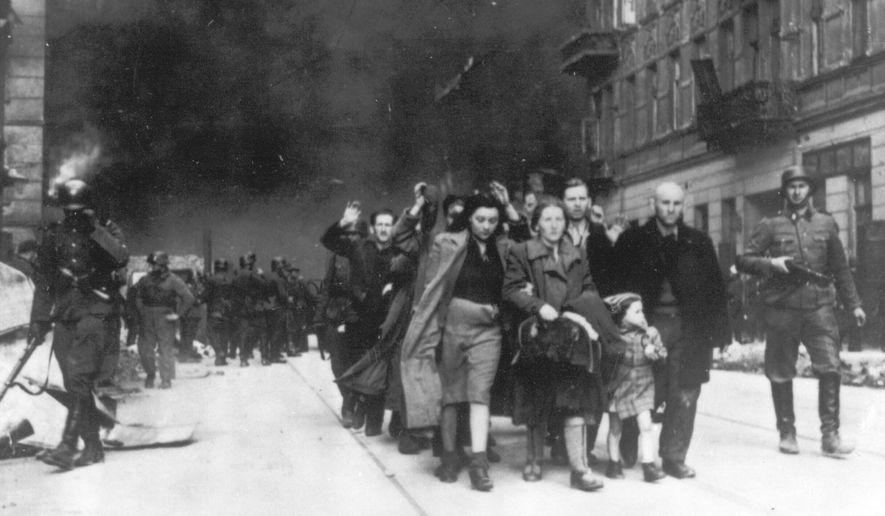JERUSALEM (AP) - Israel’s Yad Vashem Holocaust Memorial said Thursday it was “deeply disturbed” by the implications of a libel case in Poland in which two prominent Holocaust researchers were ordered to apologize to a woman for allegedly slandering her uncle over his wartime actions.
Lawyers for 81-year-old Filomena Leszczynska argued that the scholars had slandered her late uncle, Edward Malinowski, by suggesting he had helped kill Jews during World War II. The family says he saved Jews during the German occupation of Poland.
Her supporters portray the controversial case as a defense of Polish national pride, while critics say it threatens the future of independent research into the Holocaust at a time when authorities are advancing a nationalist narrative at odds with mainstream scholarship.
In a separate development, the Israeli Embassy in Warsaw criticized the appointment of a former member of a radical right-wring group to a position in the country’s state-run historical institute.
In a statement on the libel case, Yad Vashem stressed the importance of academic freedom and said any attempt to limit it through political or legal pressure was “unacceptable.”
It defended the two researchers, Barbara Engelking and Jan Grabowski, and the book they co-edited and partly wrote: “Night Without End: The Fate of Jews in Selected Counties of Occupied Poland.”
“As with all research, this volume about the fate of Jews during the Holocaust is part of an ongoing discussion and as such is subject to critique in academia, but not in courts,” Yad Vashem said.
Grabowski, a Polish-Canadian history professor at the University of Ottawa, and Engelking, founder and director of the Polish Center for Holocaust Research in Warsaw, are among Poland’s most prominent Holocaust researchers.
The University of Ottawa issued a statement pledging its “unwavering support” to Grabowski and reiterating its commitment to academic freedom.
Poland was occupied by Nazi Germany during the war and its population subjected to mass murder and slave labor. While 3 million of the country’s 3.3 million Jews were murdered, so were more than 2 million mostly Christian Poles. Poles resisted the Nazis at home and abroad and never collaborated as a state with the Third Reich. Thousands of Poles have been recognized by Yad Vashem for risking their own lives to save Jews.
Yet amid the more than five years of occupation, there were also individual Poles who betrayed Jews to the Germans. The topic was taboo during the communist era and each new revelation of Polish wrongdoing in recent years has sparked a backlash.
Leszczynska has been backed by the Polish League Against Defamation, which is ideologically aligned with Poland’s ruling party. The scholars believe the case is part of a government-backed effort to promote a narrative of faultless heroism in the face of occupation.
Stanislaw Zaryn, the spokesman for the secret services in Poland, accused the media of “slandering Poland in the international arena” and harming the country’s “information security” by reporting on the case.
The Israeli Embassy meanwhile said it was “surprised” to learn that Tomasz Greniuch, the newly appointed head of the Wroclaw branch of the Institute of National Remembrance, “sees nothing wrong with raising his hand in the Nazi greeting.”
According to Polish media, Greniuch has in the past raised his hand in a Nazi salute and organized demonstrations commemorating anti-Semitic riots before World War II. The state-run institute has defended the appointment, saying he was young at the time.
“In Poland, in a country that suffered so much under the Nazi occupation, there should be no place for using Nazi symbols,” the embassy said.
It urged Greniuch to visit the Auschwitz Museum at the former death camp, where Nazi German forces killed 1.1 million people in occupied Poland.
___
Associated Press writer Vanessa Gera in Warsaw, Poland, contributed to this report.




Please read our comment policy before commenting.